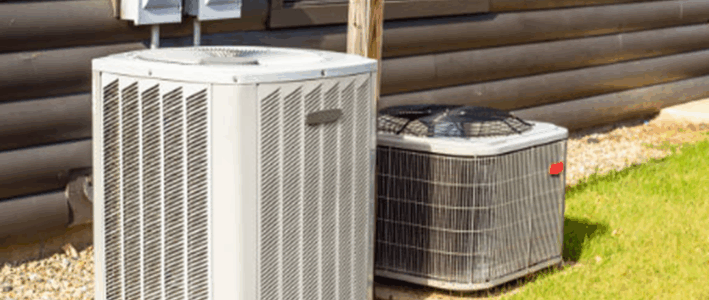Maintaining clean and healthy indoor air is vital for families, especially those with allergies, asthma, or respiratory sensitivities. In Georgia, where seasonal changes and humidity can affect comfort, understanding how HVAC affects air quality GA is essential. Your furnace or heat pump is more than just a heating and cooling system; it plays a central role in keeping the air in your home clean, comfortable, and safe.
This guide explains practical ways to improve indoor air quality with your furnace or heat pump, helping you create a healthier living environment.
Understanding Indoor Air Quality
Indoor air quality refers to the cleanliness and safety of the air inside your home. Poor air quality can lead to health problems such as allergies, respiratory irritation, headaches, and fatigue. Common pollutants include:
- Dust and dirt
- Pet dander
- Mold spores
- Pollen and allergens
- Volatile organic compounds (VOCs) from cleaning products
Furnaces and heat pumps influence indoor air quality by circulating air throughout your home. If not maintained properly, these systems can spread dust, allergens, and pollutants rather than remove them.
How HVAC Affects Air Quality in GA
Your HVAC system, including furnaces and heat pumps, affects indoor air quality in several ways:
1. Air Filtration
Furnaces and heat pumps have filters that trap dust, pollen, and other airborne particles. A clean, high-quality filter ensures the system captures contaminants before they circulate.
- Filter Types: MERV-rated filters vary in efficiency. A higher MERV rating captures smaller particles but may reduce airflow if not compatible with your system.
- Replacement Schedule: Replace filters every 1-3 months depending on usage, pets, and indoor air pollution levels.
2. Humidity Control
Georgia’s humid climate can encourage Mold growth and dust mites. Many modern heat pumps and furnaces include humidity control systems to maintain optimal indoor humidity between 30% and 50%.
- Too High: Excess humidity promotes Mold and allergens
- Too Low: Dry air can irritate skin and respiratory passages
3. Air Circulation
Proper air circulation ensures that your HVAC system evenly distributes clean air throughout the home. Poor airflow can lead to stagnant areas where dust and pollutants accumulate.
- Keep vents and registers unobstructed
- Schedule regular duct cleaning to remove built-up dust and debris
4. System Maintenance
A well-maintained furnace or heat pump operates efficiently and keeps indoor air clean. Neglected systems can develop issues like:
- Dust accumulation in ducts
- Clogged filters
- Microbial growth in coils
Regular professional maintenance is essential to prevent these problems and maintain clean air in Georgia homes.
Practical Tips to Improve Indoor Air Quality
1. Upgrade Your HVAC Filters
- Choose filters with a MERV rating suitable for your system
- Consider HEPA filters for high-efficiency particle removal
- Replace filters regularly to prevent dust and allergens from circulating
2. Maintain Your HVAC System
- Schedule annual inspections for furnaces and heat pumps
- Clean coils, ducts, and vents as recommended
- Ensure proper refrigerant levels and airflow
3. Control Humidity Levels
- Use built-in humidifiers or dehumidifiers
- Monitor indoor humidity with a hygrometer
- Address leaks and water damage promptly to prevent Mold
4. Improve Ventilation
- Open windows when outdoor air quality is good
- Use exhaust fans in kitchens and bathrooms to remove moisture
- Consider energy recovery ventilators (ERVs) for continuous fresh air
5. Keep Your Home Clean
- Vacuum with HEPA filters and dust surfaces regularly
- Wash bedding, curtains, and pet areas to reduce allergens
- Avoid indoor smoking and limit strong chemicals or VOCs
Benefits of Proper Indoor Air Quality
Improving indoor air quality with your furnace or heat pump offers several benefits:
- Healthier Living: Reduced allergens, dust, and irritants improve respiratory health
- Comfort: Proper humidity and airflow create a more comfortable environment
- Energy Efficiency: A clean, well-maintained system uses less energy
- Longer Equipment Life: Reduces wear and tear on your HVAC system
Conclusion
Understanding how HVAC affects air quality GA is crucial for families looking to improve health and comfort at home. Your furnace or heat pump does more than heat and cool; it directly impacts the cleanliness and quality of the air you breathe. By using the right filters, controlling humidity, maintaining your system, and promoting good ventilation, you can enjoy a safer, healthier indoor environment in Georgia.
Regular attention to your HVAC system ensures your home stays free from allergens and pollutants while operating efficiently. Families with allergy or comfort concerns can benefit immensely from these practices, ensuring clean air year-round.
Investing in proper HVAC care is an investment in your family’s health and long-term comfort. Contact us today to schedule HVAC maintenance or a consultation and ensure your home’s air is clean, safe, and comfortable.
Frequently Asked Questions
2. Can my furnace or heat pump help with allergies?
Yes, by using high-quality filters and maintaining proper humidity, your HVAC system can reduce allergens like dust, pollen, and pet dander.
3. Is duct cleaning necessary for indoor air quality?
Duct cleaning is recommended if ducts are dusty or have Mold growth. It helps prevent circulation of contaminants.
4. What humidity level is best for Georgia homes?
Maintain indoor humidity between 30% and 50% to prevent Mold and ensure comfort.
5. Can I improve air quality without replacing my HVAC system?
Yes, proper maintenance, filter upgrades, and humidity control can significantly improve air quality without a system replacement.






